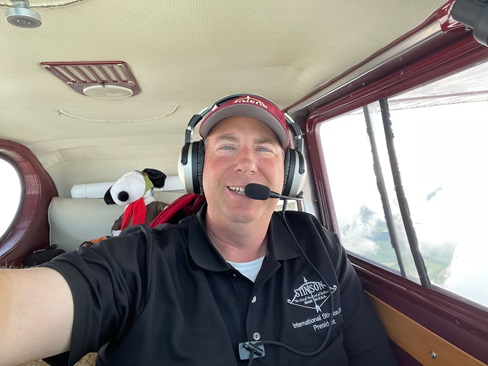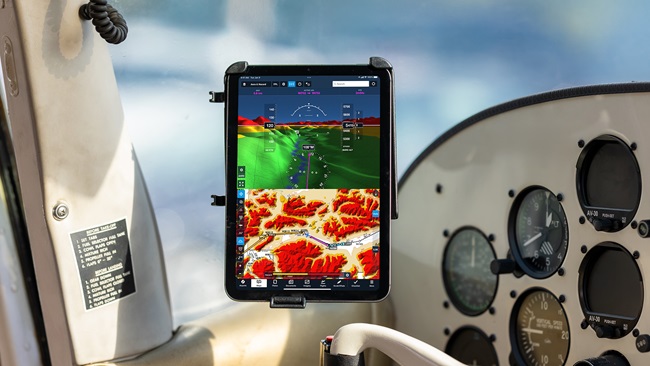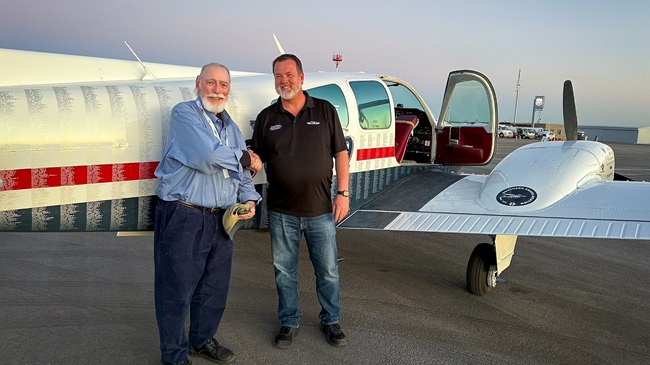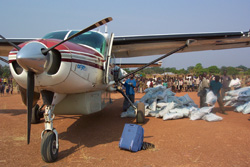
In 1984, the world was shocked into action by pictures and stories of famine and suffering coming out of Ethiopia. Humanitarian agencies rushed to provide food, water, emergency medical care, and shelter to millions of people. The relief effort was hampered by conflict and fighting; the most vulnerable were impossible for relief workers to reach safely with poor or non-existent roads and the violence. Enter Air Serv International: a group of dedicated aviation visionaries who realized the power of small-craft aviation in expanding the reach of relief and assistance during natural disasters and crises.
Loosely defining runways as paved or un-paved roads, dry river beds, or fields, Air Serv has safely and reliably increased the reach of humanitarian workers by providing aviation services—including transportation of goods, services, and relief workers; medical evacuations; and repatriation of displaced persons. Their nimble fleet of small aircraft—Twin Otters, Cessna Caravans, Beechcraft King Air, and Embraer 120s—safe and suitable for takeoff and landing on short runways, has powered this nonprofit organization to some amazing statistics. In the last decade alone, more than 230,000 passengers and 1,600 metric tons of supplies have reached their intended destination via Air Serv.
“When access is most difficult because of complex emergencies and natural disasters, humanitarian workers turn to Air Serv,” said experienced aviation professional James R. Plaxton, CEO of Air Serve. Plaxton joined Air Serv in 2007 as a volunteer consultant and was tapped by the board as full-time CEO in June 2008. “They are confident knowing our professional staff can safely fly our planes in and out of challenging situations.”
From its start in Ethiopia nearly 25 years ago, Air Serv has performed vital flight operations in 36 countries across Eastern Europe, Africa, the Middle East, the Americas, and Asia. Currently Air Serv is providing services in Chad, Mozambique, Congo, Uganda, and Iraq, where the first non-military flight after the 2003 outbreak of war was operated by Air Serv.
The organization has flown humanitarian response personnel from more than 200 organizations, as well as celebrities and government officials ranging from then-U.S. Sen. Barack Obama to Angelina Jolie and Don Cheadle. They have partnered with major humanitarian agencies including World Vision, Médecins Sans Frontières (Doctors Without Borders), and the Red Cross to fly in assistance and personnel.
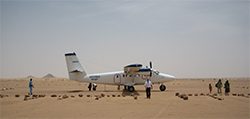 During this time, the humanitarian industry has grown, operations have become more complex, and the needs of the vulnerable have become even greater; yet Air Serv has found it hard to escape the idea of it as a group of swashbuckling “bush pilots,” which does not convey the operation’s reliability and dedication to safety. Air Serv recognized a need to professionalize in order to provide a higher level of service to more agencies and to enable more vulnerable people to access assistance.
During this time, the humanitarian industry has grown, operations have become more complex, and the needs of the vulnerable have become even greater; yet Air Serv has found it hard to escape the idea of it as a group of swashbuckling “bush pilots,” which does not convey the operation’s reliability and dedication to safety. Air Serv recognized a need to professionalize in order to provide a higher level of service to more agencies and to enable more vulnerable people to access assistance.
Under Plaxton’s immediate guidance, Air Serv began planning and implementing a modernization program to catapult its operations out of the bush leagues and into the majors. Operating under a Part 91 status from the FAA, Air Serv is working to also acquire a Part 135 air operations certificate to cover its expanding global operations serving the humanitarian community.
“It is our goal to be able to respond where the need is greatest,” said Plaxton. To that end, the organization seeks funding that will enable it to operate anywhere there is need, “not just where the donors provide the funding.”
With undesignated response funding, Air Serv will be able to establish short-term disaster-based operations based upon need, while maintaining its ongoing response to crises like Darfur.
With a modern and efficient fleet and tracking, ticketing, and maintenance program, Air Serv is well positioned to fly the humanitarian industry where it needs to go well into the future. With the continued support of the public, the organization will be financially secure enough to expand operations when there is need during a disaster and maintain the highest levels of technology and safety.
To learn more about Air Serv International, visit the Web site.
